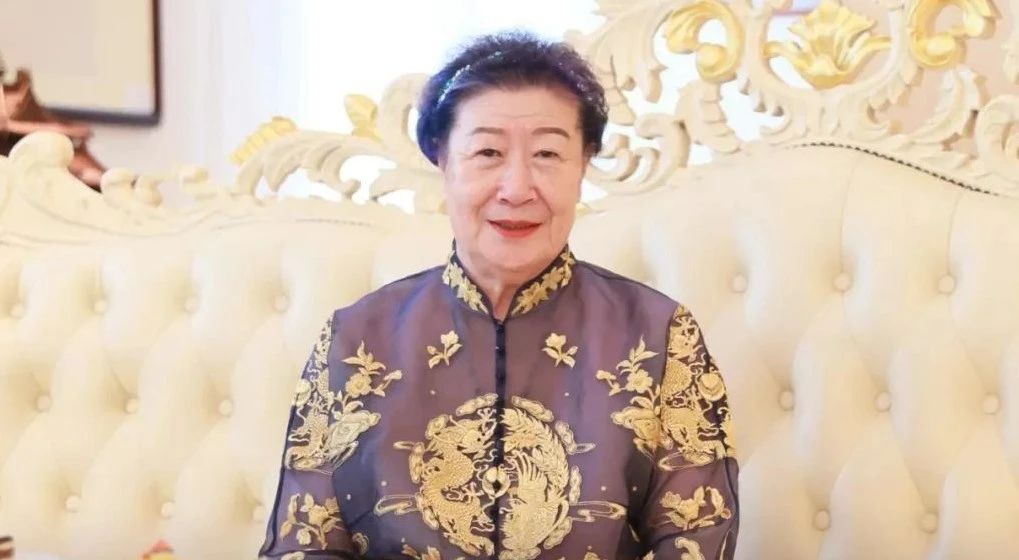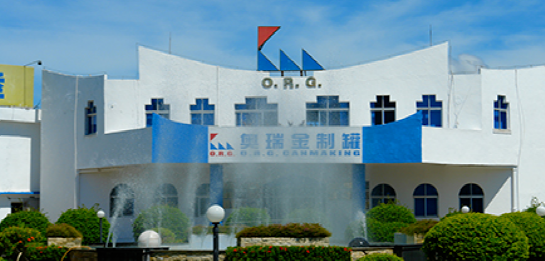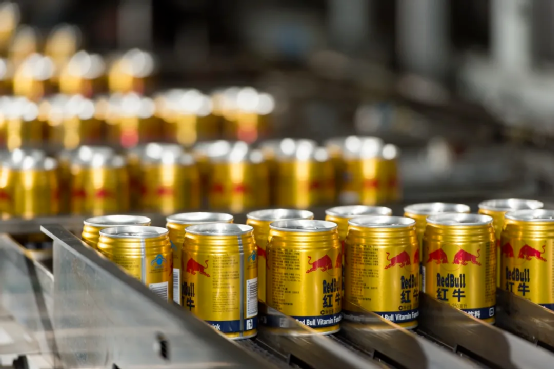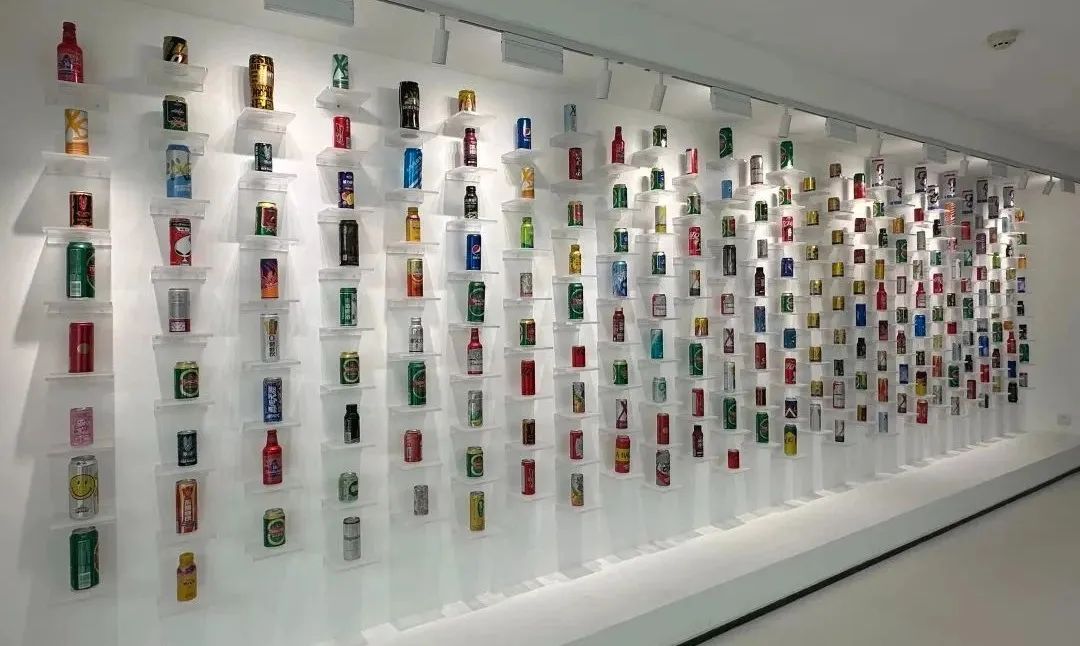
After retirement, what do you want to do? Take care of your grandchildren or travel the world? In the early 1990s, a 50-year-old Chinese woman gave a different answer: starting a business.
Inspired by the call of China's reform and opening-up, Guan Yuxiang seized the opportunity of the times at the age of 50, boldly ventured into the business world, and founded Origen Packaging. After 30 years of hard work, the small factory that started with only 16 employees has grown into a publicly listed company with 4,000 employees, and it is now China's largest food and beverage metal packaging company.
According to financial reports, Origen's revenue reached 13.843 billion yuan in 2023, with profits attributable to shareholders amounting to 775 million yuan, and the company's current market value is 11.6 billion yuan.
Over the years, what Guan Yuxiang takes the most pride in is not how much wealth she has accumulated, but how much she has contributed to the country. In April 2023, during the 17th China Brand Festival, Guan Yuxiang made a vow, hoping that by the end of 2023, the company would have paid a cumulative total of 10 billion yuan in taxes to the country, marking the best birthday gift for Origen's 30th anniversary.
Today, this wish has already been fulfilled.
Guan Yuxiang is meticulous in her work, pursuing both the process and the result. "For a company, there must be profits, otherwise, it will become lifeless. For an individual, living an unremarkable life is unacceptable. If you're going to do something, you must do it well," she said in an interview with China Entrepreneur Magazine

(1) Starting a business at 50,
It's never too late if you have the desire to accomplish something
The first half of Guan Yuxiang’s life was smooth and uneventful.
Born in 1939 in Shenyang, Liaoning, Guan Yuxiang started working at Beijing Instrument and Meter Company at the age of 19, where she stayed for 31 years.
However, after retiring at 50, Guan Yuxiang didn’t spend her days taking care of her grandchildren or traveling the world. Instead, it was as if she restarted her life by founding an instrument company in Beijing.
Her first entrepreneurial venture didn’t go well. Due to a lack of factory management experience and the sluggish market, the instrument company struggled to stay afloat for three years before eventually closing down.
Yet, Guan Yuxiang’s entrepreneurial spirit was not extinguished. While on a trip to Hainan in 1994, she discovered a business opportunity. Hainan’s beverage industry was thriving, with countless large and small beverage factories, but Guan noticed that most of the packaging wasn’t produced locally. In particular, almost all of the cans were imported from Taiwan or South Korea.
Guan Yuxiang saw an opportunity for local production. At that time, the Qinglan Economic Development Zone in Wenchang, Hainan, had a policy offering 2 million yuan in government-backed funding to support companies in building factories. Seizing the opportunity, Guan decided to head south and start a new business.
“Without industry experience and in an unfamiliar place, isn’t that a sure way to lose money?” Many around her tried to dissuade her, but she was determined. She took out her life savings from decades of work, pooled together 300,000 yuan, and in 1994 founded Wenchang Origen Packaging Company in Wenchang, Hainan.
The government funding from Qinglan Economic Development Zone was essentially a loan and needed to be repaid. However, Guan Yuxiang didn’t dwell too much on whether she could pay it back. Reflecting later, she said, “At that time, I was just focused on doing this, figuring out how to make it work.” Fortunately, about three years later, the 2 million yuan was fully repaid.
(2) Making 41 trips to secure Red Bull
Entrepreneurship requires relentless determination.
Origen Packaging is like Guan Yuxiang's second child.
When building the team, in order to attract top talent, Guan Yuxiang not only offered shares but even helped them buy cars and homes in Hainan, easing their concerns. During the factory construction phase, to handle unexpected situations, she lived and worked alongside the workers in the dormitory. To assist his mother, her son Zhou Yunjie even resigned from his job in a government office and moved south.
However, since Origen was a small factory with only 16 employees and simple production lines, it initially could only attract small beverage companies, earning meager profits and barely getting by.
Origen's fate changed when Red Bull entered China.
Xu Shubiao, the founder of T.C. Pharmaceutical Industries, Red Bull’s parent company, was originally from Wenchang, Hainan. Invited by the local government, Xu decided to return to Hainan to establish Red Bull China. However, manufacturing functional beverages in China required national approval, and Xu hit a roadblock. With the support of Yan Bin, chairman of Huabin Group, Xu finally obtained the necessary permit for “vitamin functional drinks.”
As a result, Red Bull China, a joint venture of T.C. Pharmaceutical, Huabin Group, China National Food Industry Corporation, and Zhonghao Group, was established in Shenzhen in 1995, becoming the first functional beverage brand in China.
At the time, Red Bull was already well-known internationally, and Guan Yuxiang realized that collaborating with Red Bull would secure steady orders for Origen. She shared her idea with her team, but they thought she was being unrealistic. “Red Bull is such a large company, we don’t have the manpower or equipment—why would they work with us?” they said.
Pessimists are often right, but optimists succeed. “There’s no harm in trying. If the deal goes through, great. If not, we have nothing to lose. Why not give it a shot?” With this mindset, Guan Yuxiang went to Shenzhen.
As her employees had feared, Red Bull turned her down when they learned Origen was just a small factory that had been around for barely a year. But during the trip, Guan obtained crucial information.
In the canning industry, cans are typically divided into two-piece and three-piece cans. Three-piece cans consist of a body, bottom, and lid, and after welding, the seams must be coated. At the time, liquid coating technology was widely used, but Red Bull, with its higher anti-corrosion requirements, demanded that its suppliers use the most advanced international powder coating technology.
Although Red Bull was the only company with this requirement at the time, Guan Yuxiang saw it as a future trend. She mortgaged her factory and invested heavily to import this technology and the necessary equipment from abroad, while her competitors hesitated, fearing the risks.

Over the next two months, Guan and her son made 41 trips between Hainan, Shenzhen, and Guangzhou, refining the can design to Red Bull's satisfaction. Eventually, they won the order.
“To succeed in anything, you must have that drive. Without that spirit, it won’t work,” Guan Yuxiang said, recalling the experience with determination still in her voice.
In July 1996, Origen produced its first Red Bull can, marking the beginning of the company’s rapid growth. By 1998, Origen’s annual can production had exceeded 150 million units.
In the metal packaging industry, every supplier must secure at least one major client, usually through long-term, stable strategic partnerships. To maintain its relationship with Red Bull, Origen followed Red Bull’s expansion from 1997, building factories in Beijing, Jiangsu, Zhejiang, and Hubei to facilitate supply, reduce transportation costs, and grow alongside its key client, while preventing competitors from poaching the business.
As a result, Red Bull China remained Origen’s largest client, contributing more than 70% of its revenue at one point. Even in 2023, Red Bull China still contributed 4.658 billion yuan to Origen’s revenue, accounting for 33.65% of the total.
In addition, Origen secured contracts with other major brands such as Genki Forest, Yili, Eastroc Super Drink, Jianlibao, JDB, Want Want, Tsingtao Brewery, and Snow Beer. The once-retired worker had transformed into the undisputed “queen of cans.”
(3) Breaking through with technology
Always remember the way they looked down on me.
Since the start of China's reform and opening-up, many domestic manufacturing companies have gone through a phase of importing foreign equipment and moving from imitation to independent research and development. During this process, Chinese companies often faced disdain, ridicule, and technological barriers.
For instance, when Chery imported an engine production line from the UK, the engineers dragged their feet for a year without setting it up. Frustrated, Yin Tongyue kicked them out. Under the doubtful gaze of the foreigners, Yin vowed to develop Chery's first engine, and within eight months, his team succeeded.
Guan Yuxiang had a similar experience. In the early days of Origen Packaging, she bought equipment from a company in Taiwan, but the seller was arrogant and refused to provide technical documentation or basic materials. Guan personally confronted them, and they told her something she would remember for the rest of her life: "Even if we gave it to you, you wouldn’t understand it."
Perhaps that moment of disdain planted the seed for "technological breakthroughs" in Guan Yuxiang’s mind. Origen later developed a research model based on "developing one generation, applying one generation, and reserving one generation."
For can-making companies, the thickness of the steel sheet used in the can body directly affects production costs and, ultimately, customer choice. The steel Origen initially used was 0.21mm thick, while internationally, DR material had been refined to 0.13mm, with experimental products reaching 0.10mm.
Through the efforts of Guan’s team and their technical collaboration with steel mills, Origen became the first company to apply DR material to domestic can bodies. "We now produce cans with a steel thickness of 0.12mm, essentially on par with international standards," Guan Yuxiang proudly remarked.
Another technology Guan frequently mentions is laminated steel, which was first developed in Japan, followed by European and American countries. They kept the technology strictly confidential, refusing to share any information with Chinese visitors.
Determined to break the foreign monopoly, Guan Yuxiang led her team in developing the technology themselves. From research, development, and experimentation to factory testing, it took them seven years to succeed. By the end of 2021, Origen had produced more than 2.5 billion cans using laminated steel, capturing significant market share from foreign competitors.

"Technological innovation is the core competitiveness of a company. Without it, a business cannot grow. We must make our nation proud in this industry and contribute to the development of our national industries!"
The mocking words from those early days transformed into the driving force behind Guan Yuxiang and Origen’s relentless progress.
(4) Paying over 10 billion in taxes
In life, you must always leave something behind.
Whether an entrepreneur or an ordinary person, it seems that the older generation finds it hard to stay idle.
In fact, after Origen Packaging went public on the Shenzhen Stock Exchange in 2012, Guan Yuxiang handed over all her shares to her son Zhou Yunjie and gradually stepped away from the company’s management. However, she still contributes in any way she can, occasionally lending her support to the company. For example, during the pandemic, when most senior executives were unable to return to Beijing, Guan took charge of the renovation and upgrades at Origen’s headquarters.
To Guan Yuxiang, no matter the circumstances, age, status, or position, life should have meaning. One should use their abilities to get things done and do good work.
Her understanding of happiness is simple and modest: "As long as the factory is fine, the workers are fine, the business is doing well, and we’re paying taxes dutifully, that’s happiness."
What makes Guan especially proud is that during the pandemic, not a single one of Origen’s 4,000 employees got infected, and the company did not lay off a single person. By the end of 2023, Origen had contributed over 10 billion yuan in taxes to the country.
Beyond business, Guan Yuxiang is also passionate about charity work, particularly in education and poverty alleviation. She has donated over 20 million yuan, helping many children in impoverished regions.
“So sometimes I feel that, within your capabilities, you should strive to live a perfect life. And what is perfection? It’s not about what I want to achieve personally or what I gain, but about what you bring to society,” Guan Yuxiang reflected when discussing the meaning of life.